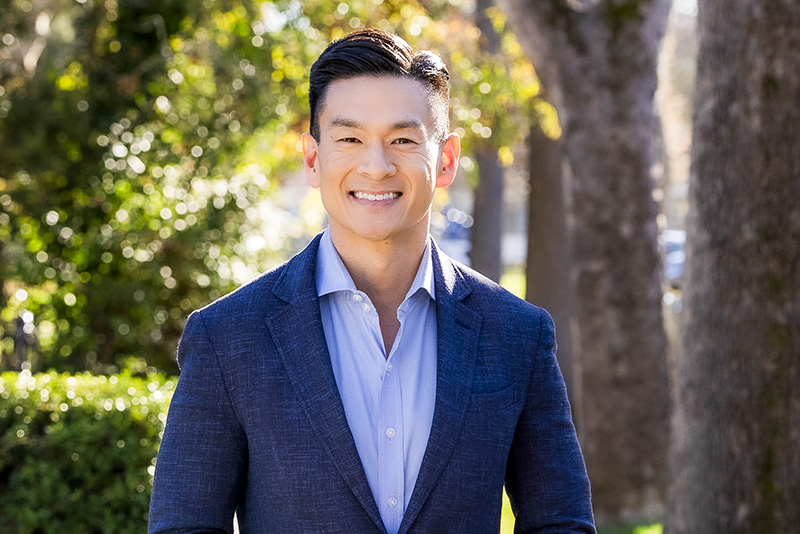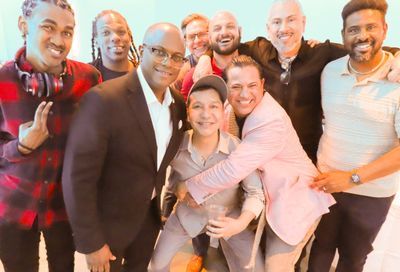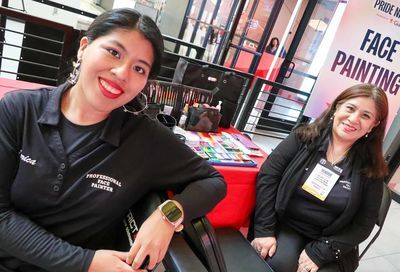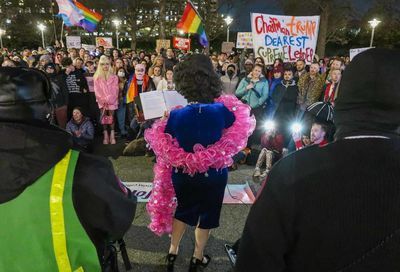Biden urged to appoint a Black LGBTQ woman to Supreme Court
LGBTQ advocates are holding Biden to his campaign promise of nominating a Black woman to the Supreme Court

At least two major LGBTQ organizations have urged President Joe Biden to appoint a Black LGBTQ+ or same-gender-loving woman to the U.S. Supreme Court to replace Justice Stephen Breyer, who recently announced his retirement.
LGBTQ Victory Institute, which advocates for greater LGBTQ representation in government and public service, noted that neither an LGBTQ person nor a Black woman have ever been appointed as a justice on the nation’s highest court.
Biden, when campaigning for president in 2020, said that if given the opportunity to name a justice, would appoint a Black woman to the Supreme Court. Breyer’s retirement, announced on Wednesday, provides him the rare opportunity to follow through on a campaign promise, although the eventual nominee’s confirmation would not sway the balance on a court stacked 6-3 in favor of conservative justices appointed by Republican presidents.
Among those considered by political pundits to be frontrunners for the position are Judge Ketanji Brown Jackson, of the D.C. Circuit Court of Appeals and California Supreme Court Justice Leondra Kruger.
In a pre-emptive strike against conservatives who might complain about “tokenism” or “identity politics” in an effort to undermine Biden’s eventual nominee, Victory Institute’s Presidential Appointments Initiative, a coalition of more than 30 organizations seeking to highlight qualified LGBTQ individuals for potential appointments or government posts, stated that there are many qualified LGBTQ Black women who could serve as an associate justice, including Washington State Supreme Court Justice G. Helen Whitener.
As many other organizations have previously noted, just because a nominee or appointee would bring an element of diversity to an institution or be a political “first” does not negate their qualifications: a person can both be eminently qualified to serve and represent diverse or historically marginalized populations — despite how many Americans may intellectually or ideologically refuse to embrace such a concept.
“We urge President Biden to make history and appoint a Black LGBTQ woman to the U.S. Supreme Court,” Ruben Gonzales, Executive Director of LGBTQ Victory Institute. “With his previous commitment to nominate a Black woman, President Biden affirmed the important role diverse perspectives have on the bench and on the health of our democracy and society. There is a powerful pipeline of Black LGBTQ judges, officials and leaders who are more than qualified to fulfill this promise.
“We’ve seen time and time again that LGBTQ freedoms are fought for and won in the courts,” Gonzales added. “It’s past time we have representation in the highest judicial body tasked with protecting our fundamental rights. Justice Breyer was a champion of equality during his nearly three-decade career on the bench and replacing him with an LGBTQ Black woman justice would be a powerful way to carry on his legacy.”
The call for a Black LGBTQ Supreme Court nominee is one of four priorities outlined by the Presidential Appointments Initiative last year after Biden took office. Two of the four priorities have already been achieved, following the confirmation of Secretary of Transportation Pete Buttigieg as the first Senate-confirmed out LGBTQ Cabinet member, and the confirmations of Assistant Secretary of the U.S. Department of Health and Human Services Admiral Rachel Levine and Assistant Secretary of Defense for Readiness Shawn Skelly as the first out transgender people to be confirmed by the U.S. Senate. The fourth priority — the successful appointment of the first LGBTQ women ambassadors, LGBTQ ambassadors of color and transgender ambassadors — has not yet been achieved.
But LGBTQ Victory Institute has not been the only group making such a request. The National Black Justice Coalition, the nation’s leading Black LGBTQ civil rights group, also called for a Black same-gender-loving woman to be nominated for a spot on the high court.
Knowing that critics would demand names of qualified individuals, NBJC has provided three names — among scores of others who could also be considered qualified — for potential court nominees. Two key names on that list include Judge Staci Michelle Yandle, a judge for the U.S. District Court for the Southern District of Illinois; and Whitener, the Washington State Supreme Court Justice who would bring diversity to the bench as a Black, disabled, out lesbian.
NBJC also floated the name of Judge J. Michelle Childs, who, despite being a cisgender, heterosexual woman, made a historic ruling on the case that declared South Carolina’s ban on same-sex marriages unconstitutional, paving the way for the eventual ruling in the U.S. Supreme Court case of Obergefell v. Hodges, which legalized marriage equality nationwide.
“The U.S. Supreme Court is a branch of government that should include the diversity of life experiences of the American people on its bench. Staci Michelle Yandle and G. Helen Whitener are two candidates among others who would provide racial, gender, and sexual orientation perspectives and cultural competency to assist in fair, equitable, and objective rulings,” David Johns, the executive director of NBJC, said in a statement. “Judge J. Michelle Childs would also be an excellent pick. It’s time for President Biden to live up to his campaign promise and appoint a Black woman to the Supreme Court.”
The LGBTQ media advocacy organization GLAAD reflected on Breyer’s legacy, saying that legacy includes “elevating the dignity and rights of LGBTQ citizens.”
“We urge President Biden to nominate a successor as committed to equality, and reflective of our diversifying nation. Women, people of color and LGBTQ people are underrepresented on the Court. The time is now,” GLAAD President and CEO Sarah Kate Ellis said in a statement.
In 2020, a poll of LGBTQ voters conducted by GLAAD found that 83% of respondents said it was “very” or “somewhat” important to have an LGBTQ justice nominated to the Supreme Court, underscoring the demands made by other LGBTQ advocacy organizations.
The National LGBTQ Task Force, too, echoed similar concerns in a statement that praised Breyer’s legacy while also critiquing a lack of diversity — not only in background, but in terms of lived experience — among the court’s current justices.
“The demographic of our country is ever evolving. However, of the 115 justices who have served over the Court’s 233-year history only five are women, three are people of color and just ONE women of color has ever served on the highest court of the people,” Kierra Johnson, the executive director of the Task Force, said in a statement.
“The National LGBTQ Task Force urges President Biden to keep his promise and nominate the first Black woman to the Supreme Court Bench. This is not simply about representation. The country needs Justices who bring a proven record of championing the civil and human rights of all people while upholding our democracy,” Johnson added. “We deserve a Supreme Court that reflects the demographic and experiential diversity of our country and values all of us as worthy of fair representation and protection.”
Support Metro Weekly’s Journalism
These are challenging times for news organizations. And yet it’s crucial we stay active and provide vital resources and information to both our local readers and the world. So won’t you please take a moment and consider supporting Metro Weekly with a membership? For as little as $5 a month, you can help ensure Metro Weekly magazine and MetroWeekly.com remain free, viable resources as we provide the best, most diverse, culturally-resonant LGBTQ coverage in both the D.C. region and around the world. Memberships come with exclusive perks and discounts, your own personal digital delivery of each week’s magazine (and an archive), access to our Member's Lounge when it launches this fall, and exclusive members-only items like Metro Weekly Membership Mugs and Tote Bags! Check out all our membership levels here and please join us today!





















You must be logged in to post a comment.